With one in five Australians living with a mental health issue, it seems we all know someone who is struggling.
At the University of South Australia (UniSA) our mental health researchers are working closely with those with lived experience, and in partnership with clinicians and health providers, to ensure their holistic approaches remain person-centred and trauma-informed.
Their inspiring work is already having meaningful impact in our community.
When you donate to UniSA’s Enterprising Minds for Mental Health appeal, 100% of your donation will support our mental health researchers to progress their important work.
In order to live a supported and connected life, we all need to invest in one another, helping our family, friends, neighbours – and ourselves.
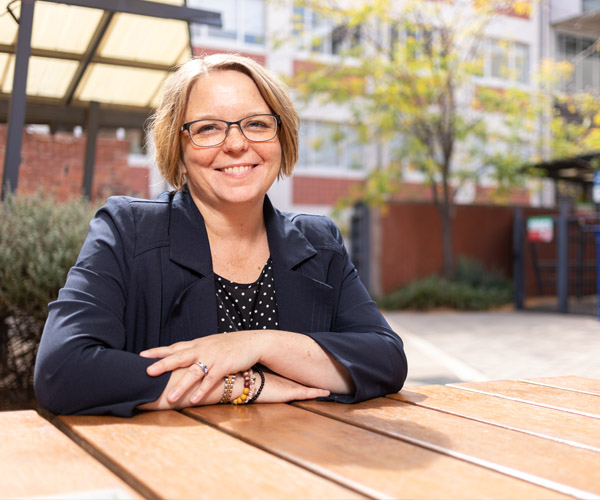
The power of sleep on young people’s mental health
Dr Jillian Dorrian
Sleep is vital to live a healthy and fruitful life, and not getting enough – or the right kind – has detrimental effects on an individual’s mental wellbeing. more...
Sleep is vital to live a healthy and fruitful life, and not getting enough – or the right kind – has detrimental effects on an individual’s mental wellbeing.
Furthermore, the emerging field of chronobehaviour has led to an increasing recognition that it is not simply what we do, but when, and how consistently we do it, that impacts on physical and psychological functioning.
Professor of Psychology and Dean of Research at UniSA’s Justice & Society, Dr Jillian Dorrian, is an expert in sleep and advocate for chronobehaviour and its importance in healthy development. She is currently investigating its ultimate effects on young people’s mental health during precarious development ages.
Her most recent project is focused on behavioural coping strategies for remaining healthy despite exposure to sleep loss and has allowed her to turn her attention to the pressing issue of young people’s mental health.
As champions for the importance of sleep for healthy development, Dr Dorrian and her colleagues at UniSA have a close collaboration with Resilient Youth, Victoria, a not-for-profit dedicated to promoting health and learning for school students in Australasia.
Together, their analyses of the Resilient Youth database, including health information for more than 350,000 students in more than 1,500 schools, are contributing to our understanding of the critical importance of sleep for biological, psychological, and social health during the school years.
Collaborative research with Resilient Youth, and with the SA Department of Education highlights important relationships between technology use (e.g. text messaging at night), sleep, eating patterns (including junk food consumption), friendships, and mental wellbeing.
Hand-in-hand with the intrusion of technology into the bedrooms of young people, comes new opportunities for 24-hour experiences of bullying, and associated costs for sleep and mental health.
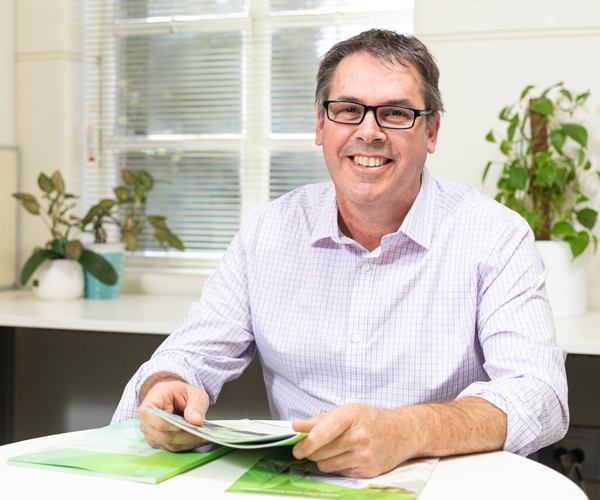
Shaping our mental health system with lived experience
Dr Mark Loughhead
People with personal experience of mental health challenges and recovery, including suicide more...
People with personal experience of mental health challenges and recovery, including suicide related distress, often develop significant life skills and knowledge which can better guide our service responses, policy frameworks and board room decisions – commonly referred to as ‘lived experience’.
As an emerging workforce, people with lived experience are playing key roles in mental health as peer support workers, project officers, educators, advisors, managers, advocates, and directors. Carers can also be a lived experience voice, expressing concerns and perspectives as family members and friends.
All seek a more gentle, compassionate, and empowering mental health system, free from stigma and shame.
Dr Mark Loughhead, Co-Director of UniSA’s Mental Health and Suicide Prevention Research and Education Group (MHSPR&E) is the inaugural lived experience academic at UniSA, where he teaches and undertakes research from a mental health lived experience perspective.
Working in a partnership between the Lived Experience Leadership Advocacy Network (LELAN) of SA, and MHSPR&E, his research work helps to raise the profile and recognition of lived experience leaders within SA’s mental health organisations and systems.
Furthermore, Dr Loughhead is continuing to promote a peer led, recovery focus within mental health workforces and create compassionate and connecting narratives on mental health.
By working alongside many others, Dr Loughhead’s work helps to identify ways to support emerging leaders, strengthen skills and capacity, and encourage sector organisations and government to improve funding, commitment, and innovation.
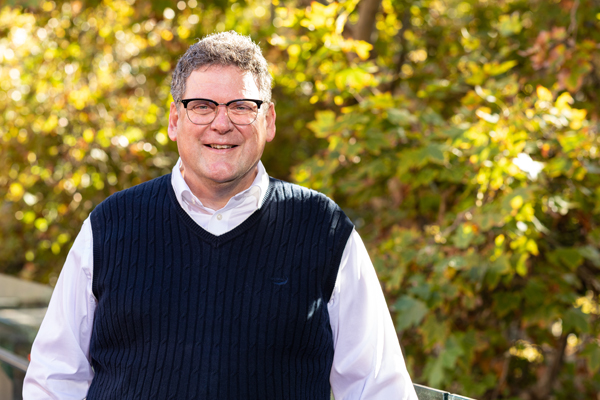
Compassion first care in suicide prevention
Professor Nicholas Procter
Suicide rates are on the rise in Australia.
It’s the leading cause of death among people aged 15-49 more...
Suicide rates are on the rise in Australia.
It’s the leading cause of death among people aged 15-49 and men are still three times more likely to die by suicide than women. Aboriginal people die by suicide at twice the rate of non-Aboriginal people (27.1 compared to 12.7 per 100,000 population) and children and young people account for an overwhelming majority of all suicides among Aboriginal people.
To reduce these rates, Professor Nicholas Procter, Chair of Mental Health Nursing and Director of the Mental Health and Suicide Prevention Research and Education Group (MHSPR&E) is addressing the fact that self-harm is a known risk factor, and is working with communities, organisations and government institutions to develop better safety planning interventions.
Statistics show that a ‘personal history of self-harm’ is the most common psychosocial factor associated with suicide, reported in 17.5% and 30.5% of deaths by suicide for males and females, respectively.
Furthermore, research highlights key factors that both contribute to suicide or are indicators of vulnerability to suicide – financial distress, insecure housing, discrimination, childhood trauma, alcohol, and substance abuse.
Professor Procter and his team at UniSA are highly regarded nationally and internationally for leading numerous initiatives aimed at improving the lives of people in mental distress and at risk of suicide.
They have successfully worked with State and Territory governments and national organisations, such as the Australian Red Cross, to provide specific education for their frontline workers in how to address known touch points.
Person-centred planning co-designed with the person at risk, and safety planning can be an effective means of helping people manage the onset or worsening of critical moments in the suicide experience. Taking compassionate steps, often with the support of others, helps to make their situation safer.
Specialist compassionate aftercare in the form of brief interventions following attempted suicide is essential. It can go a long way to supporting people and interrupting a possible trajectory towards suicide in the future.
The team is now expanding this work to institute universal education for frontline workers and people at increased risk of suicide across broader sectors, to better equip staff working closely with people in high-risk groups and reduce the rates of suicide.
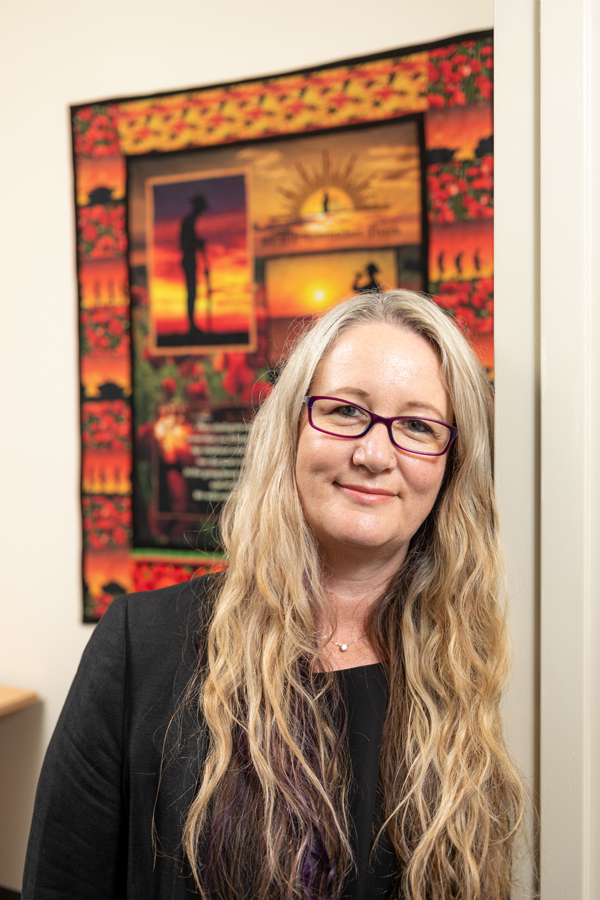
Better support for those who care for veterans
Dr Dannielle Post
Family carers of veterans in South Australia have been shown to have high levels of psychological distress as they undertake their caring role in challenging circumstances, often to the detriment of their own psychological and physical wellbeing.
A team of UniSA researchers has been delving into the psychological and physical wellbeing of a group of SA family care-partners of veterans. more...
Image: Quilt created by Operation PTSD Support group
Family carers of veterans in South Australia have been shown to have high levels of psychological distress as they undertake their caring role in challenging circumstances, often to the detriment of their own psychological and physical wellbeing.
A team of UniSA researchers has been delving into the psychological and physical wellbeing of a group of SA family care-partners of veterans.
In fact, their pre-COVID-19 work with family care-partners of veterans demonstrated that more than 70% of care-partners had moderate-to-high levels of psychological distress, and low levels of physical activity compared to population norms. Furthermore, it was discovered that care-partners with higher resilience were likely to do more physical activity.
Dr Dannielle Post, Lecturer in Health Sciences: Public Health and Project Lead: Healthy Choices at UniSA, is leading this team of impressive researchers in understanding the emotional and practical support needs of family care-partners of veterans for reducing depression and promoting wellbeing.
Based on these findings, this current project seeks to establish the psychological and physical wellbeing of family care-partners across Australia and identify the emotional and practical supports required by care-partners to enable them to maintain their own wellbeing needs, with the intention of circumventing the development of depression.
The project is examining the psychological wellbeing (depression, resilience, and quality of life), health behaviours (physical activity, sedentary time, sleep, smoking, alcohol intake, and medication use), and impact of COVID-19 for care-partners.
Dr Post says that we need to understand these factors to be able to make meaningful recommendations for interventions and policy changes that support care-partners to reduce their risk of developing depression and associated poor health outcomes and improve their wellbeing.
Importantly, family care-partners who are appropriately supported to manage their own psychological and physical wellbeing needs will not only experience improved health and wellbeing, but also be better equipped to manage the demands of their caring role.
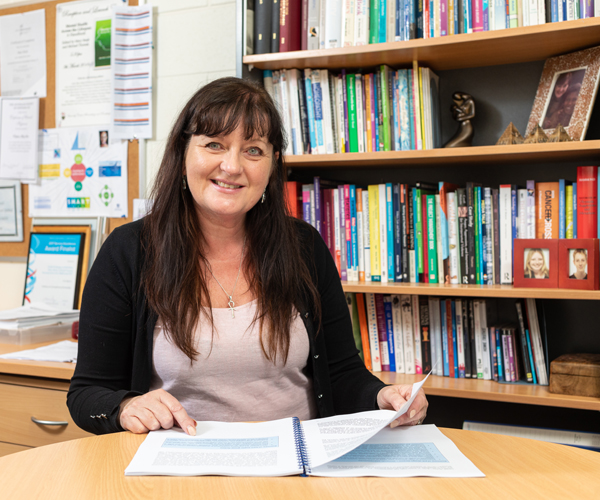
Teaching children ‘You Matter’
Professor Mary Steen
An estimated 1 in 7 children and young people suffer from mental health conditions more...
An estimated 1 in 7 children and young people suffer from mental health conditions such as depression, anxiety, stress and other behavioural concerns. It is anticipated that those already struggling will be at increased risk of not being able to cope very well post-COVID-19.
It is therefore vitally important to provide education and training for young people in South Australia to enable them to develop self-care skills that include self-compassion, building resilience and strengthening their immunity, to prevent mental illness and sustain wellbeing.
UniSA Midwife and Professorial Lead for Maternal and Family Health, Professor Mary Steen, is working towards providing children and young people with the support and ability to sustain their health and wellbeing through a new program called You Matter: Compassionate Self-Care.
This holistic self-care program consists of three components: self-compassion (self-kindness, shared human experiences, calm and relaxation techniques), building resilience for wellness (Mind Resilience Model) and Start Treating Others Positively techniques, and finally, building your immunity to stay healthy (by eating well, exercising daily, and sleeping well).
You Matter: Compassionate Self-Care will be piloted in collaboration with Grow Wellbeing, a South Australian based organisation formed in 2016 to help embed health and psychological services in schools, school communities and community organisations.
It will be rolled out to the network of 52 schools across the state where Grow Wellbeing mental health clinicians are currently providing support to children and young people. The breadth and scope of this pilot project has great potential to have a real and positive impact on the health and wellbeing of a broad range of school children throughout the state.
You Matter: Compassionate Self-Care and its three important components will enable clinicians, children and young people to develop self-compassion, build resilience and immunity life skills to help them collectively ‘Stay Well, Stay Safe and Stay Healthy’.
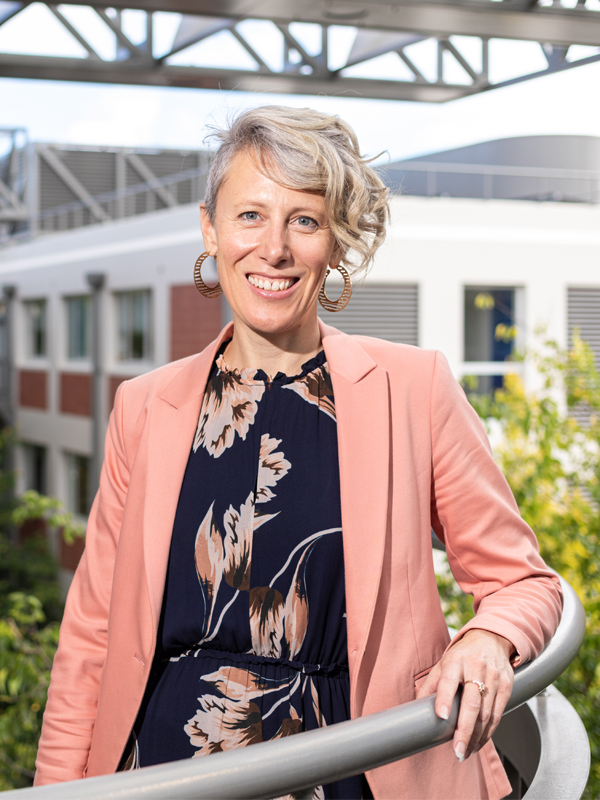
Responding to workplace bullying
Professor Michelle Tuckey
Workplace bullying is a serious health and safety hazard in Australian workplaces, more...
Workplace bullying is a serious health and safety hazard in Australian workplaces, with one in 10 Australian workers experiencing ongoing bullying at work.
It can be tempting to see bullying as a behavioural problem caused by a small number of staff members; however, the balance of scientific evidence suggests instead that bullying is an organisational problem that reflects poor conditions in the organisation.
To uncover which unhealthy conditions enable bullying at work, UniSA researchers looked at 342 real-life bullying complaints.
Their analysis identified 10 root cause risk factors for bullying that all stem from how well people and tasks are coordinated. In a five-year program of research, a risk assessment tool and intervention process to tackle these root causes were developed, tested, and refined.
Through this collaboration with a range of industry partners, UniSA researchers – led by Professor Michelle Tuckey – have created a risk assessment tool and intervention process that recognises and resolves bullying as a work health and safety issue arising from the work culture and environment.
Using the intervention process and assessment tool, Professor Michelle Tuckey and her team work together with partner organisations – from the frontline to the boardroom – to identify where and how to change work systems and practices in order to bully-proof the organisation.
This evidence-based approach is unique in the world in effectively identifying and addressing the root causes of bullying, enabling organisations to build mentally healthy work environments and workplace cultures. Early results suggest marked improvements can be quickly delivered in workplace conditions, measurable in metrics such as absenteeism.
The team is now setting its sights on robust and scalable delivery systems to address the scope of this workplace challenge, creating bully-resistant organisations nationwide.
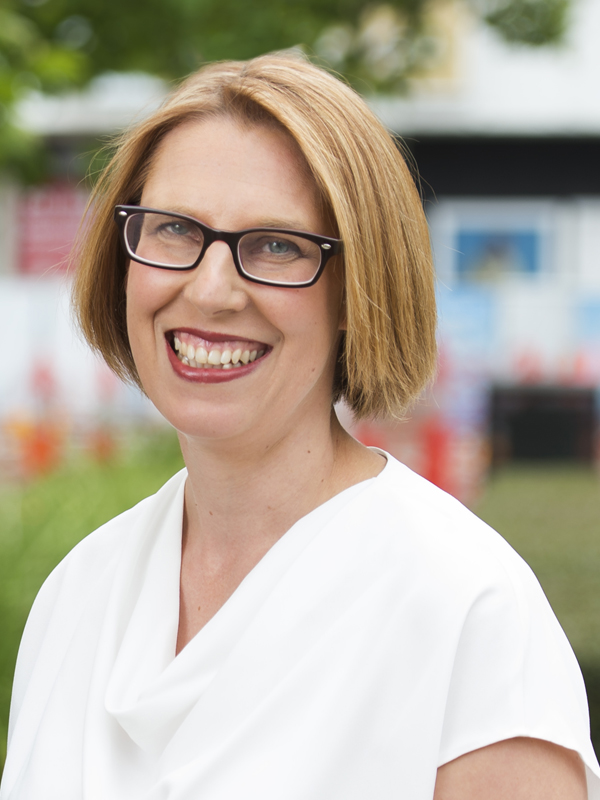
Frontline approach to transform lives of traumatised children
Professor Leah Bromfield
A new series of online training courses focused on transforming the lives more...
A new series of online training courses, focused on transforming the lives of children who have experienced child abuse and neglect, will support frontline practitioners to deliver world-leading responses to abuse-related trauma, as part of a new leading initiative.
Sexual abuse and the impacts of abuse related trauma continue to be significant social issues with up to 27% of Australian females and 12% of males reporting experiencing childhood sexual abuse.
The Royal Commission into Institutional responses to Child Sexual Abuse recommended service capacity in treating abuse-related trauma be increased, particularly for children.
In response, Professor Leah Bromfield with her colleagues at the Australian Centre for Child Protection (ACCP) at UniSA are leading a new initiative, The Pursuit of Excellence in Responding to Child Abuse and Neglect (PERCAN). In partnership with Lotterywest and Parkerville Children and Youth Care (Inc) in Western Australia, this initiative is focused on the development of new high-quality therapeutic responses to child abuse and neglect.
As part of PERCAN’s program of work a new tertiary accredited online series of three Professional Certificate courses is being developed by specialist trauma clinicians and research experts across key identified areas of need.
Through the PERCAN program of work, a new co-designed approach for a high-quality evidence-informed therapeutic response to Aboriginal children with complex trauma is in development. The approach will then be adapted for use with non-Aboriginal children across Australia.
Strong cultural governance, including an Aboriginal Cultural Leadership Group, has been established to ensure culturally competent therapeutic responses are embedded.
The PERCAN initiative and its programs of work are firstly being designed for the WA service context and client populations, with the intention of rolling them out nationally.
One of the most powerful ways to transform the lives of children affected by abuse and neglect is to support frontline workers, ensuring they have the tools and information they need to effectively respond to children and their families.
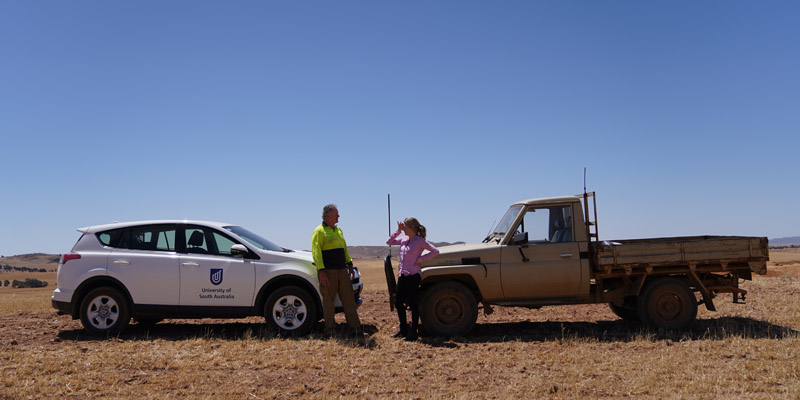
Ifarmwell – support designed for farmers
Dr Kate Gunn
Australian farming communities are continually exposed to challlenges more...
Australian farming communities are continually exposed to challenges associated with drought, fires, floods, disease, increasing costs and wavering produce prices, as well as a poor understanding of their industry from those outside of it.
The inability to control these stressors and the sense of hopelessness and entrapment this may cause, is a potential risk factor for rural male suicide. In fact, there is a higher incidence of suicide among farming populations.
Due to their geographic remoteness, farmers have reduced access to professional support. They are often also reluctant to seek out these services for a variety of reasons, including stoicism, stigma, inability to leave the farm and concerns about privacy.
UniSA Senior Research Fellow, Dr Kate Gunn, has created a new website to equip farming families with tools that reduce the negative impact that these sorts of stressful situations have on their lives.
Dr Gunn’s work over the past 10 years - comprehensively examining rural mental health issues - has been fundamental to the development of the ifarmwell website (www.ifarmwell.com.au), an innovative new online resource specially tailored to the needs of rural communities.
The website was inspired by Dr Gunn’s personal experiences growing up on a South Australian farm, and is informed by her professional work as a Clinical Psychologist and through extensive consultation with Australian farmers.
Feedback received from farmers and industry partners is that this website is particularly valued as it was created with farmers, for farmers, is confidential, relevant, accessible, and is free.
Testimonials highlight that the website is meaningful, gives users hope, provides distance from overwhelming thoughts and feelings, as well as strategies to make the most of their lives - despite the challenges they may face.
Having developed and rolled-out the website, Dr Gunn continues to expand the offerings, developing new modules in a variety of formats (including video) to meet farmers’ changing needs. She is also hoping to increase the reach and take-up of the website so that more farmers can benefit from this resource.
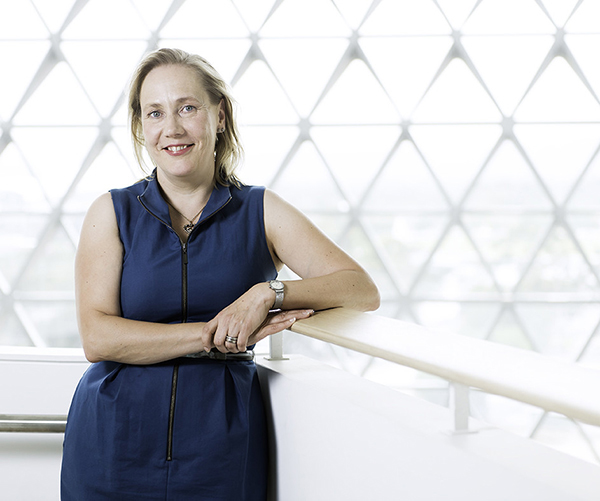
Can artificial intelligence predict depression?
Professor Elina Hyppönen
Depression remains a leading cause of disability worldwide and can have lasting, debilitating effects on an individual’s wellbeing more...
Depression remains a leading cause of disability worldwide and can have lasting, debilitating effects on an individual’s wellbeing and quality of life.
Researchers at the Australian Centre for Precision Health (ACPH), led by Professor Elina Hypponen, are now dedicated to preventing the condition before it strikes.
Professor Hyppönen has multiple highly cited papers which are ranked among the top 1% of papers in the field globally.*
The ACPH team has recently conducted an important genetic study that suggests that depression itself is a causal risk factor for 22 other conditions including asthma, heart disease, high cholesterol, oesophagitis, and gastroenteritis among others.
With detailed information collected from more than 500,000 people, the team is using artificial intelligence (AI) to identify new predictors for depression. Professor Hypponen and her team will use AI modelling as a way of allowing the data to show which risk factors best predict who will end up developing depression.
These AI models will use information from more than 11,000 characteristics describing the individuals before they developed the condition, providing a truly unique opportunity to obtain new insights into risk factors and pathways to depression.
They will also be able to ‘look into the brain’ (using detailed information available through brain images) and see how these same factors that increase the risk of depression affect different aspects of brain structure.
This will be the first time that researchers will have the opportunity to investigate the links between the physical structures in the brain and their associations with depression in the context of risk factors.
It is a ground-breaking and transformative approach which will provide the opportunity to identify new, modifiable risk factors of depression and inform future strategies to prevent this debilitating condition.
*Clarivate, Web of Science, Data retrieved 11-9-20
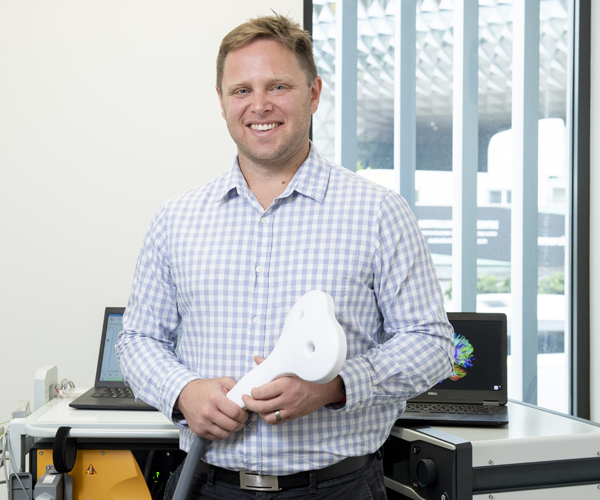
New technologies for people experiencing post-stroke depression
Dr Brenton Hordacre
Across the world there are 80 million stroke survivors, more...
Across the world there are 80 million stroke survivors, with almost 50% of those millions of stroke survivors experiencing post-stroke depression.
Post-stroke depression is under recognised and poorly treated, with incredibly negative consequences for recovery, activities of daily living, self-efficacy and mortality.
Current pharmacology management is hampered by several side-effects and poor treatment adherence. With more than 50,000 strokes occurring each year in Australia – and projections expected to reach one million stroke survivors living in the community by 2050 – it’s never been more important to find better treatments for people with post-stroke depression.
There are exciting developments coming out of the Innovation, Implementation and Clinical Translation (IIMPACT) team at UniSA, with a promising brain-based therapy providing new hope for these post-stroke depression sufferers.
Senior Research Fellow and Plasticity Theme Leader at IIMPACT, Dr Brenton Hordacre has been dedicated to helping people recover following stroke for most of his career. Now leading the Neurorehabilitation Advanced Technology Service, he is translating these research findings into clinical practice, working directly with patients.
He’s also passionate about testing new technologies to augment stroke recovery and use state-of-the-art neurophysiological and imaging techniques to understand the brain and how it responds to treatment.
Dr Hordacre and his IIMPACT team’s current research involves repetitive transcranial magnetic stimulation (rTMS) – a safe and promising treatment that increases brain activity with electromagnetic pulses. RTMS works to change neural activity in the brain to improve depression. However, translating this therapy to post-stroke depression is challenging. Most notably, stroke causes permanent damage to brain tissue and alters the way it functions, dampening the ability of rTMS to modify neural activity.
This is why Dr Hordacre and his team are dedicating research efforts to identifying neural characteristics that enable greater clinical response to rTMS treatment for post-stroke depression, with hopes of implementing the research through a dedicated stroke rehabilitation clinic at the University.
There is a lack of evidence-based research for this type of intervention in a somewhat neglected aspect of stroke care. With one in two stroke survivors suffering with post-stroke depression, identifying new treatments would be a significant breakthrough for stroke survivors, their families and the wider health system.
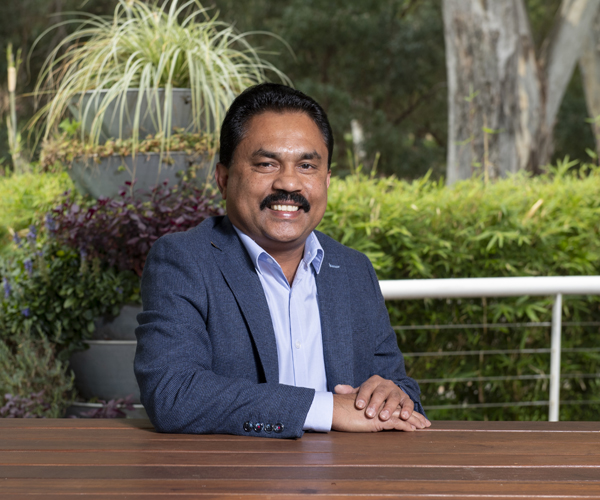
Treating older people with major depression
Dr Rasika Jayasekara
Major depression is a leading cause of morbidity and mortality in the elderly, more...
Major depression is a leading cause of morbidity and mortality in the elderly, with an estimated prevalence of 15% - 25% among nursing home residents.
Some older people, despite taking antidepressants, continue to experience symptoms and or disabling adverse effects. Therefore, there is a growing need to consider alternative forms of treatment.
Senior Lecturer, Dr Rasika Jayasekara, and his UniSA colleagues examined which current treatments are the most effective for older populations, including cognitive behavioural therapy.
Cognitive behavioural therapy, a form of psychotherapy, is regarded as a non-pharmacological intervention that can provide people with depression with the skills to manage their illness and positively influence their symptoms by changing their behaviour and thought process.
However, up until Dr Jayasekara's review, the usefulness of cognitive behavioural therapy as an intervention in depressed older adults had not been adequately evaluated to make clinically meaningful recommendations.
Dr Jayasekara's research incorporated a systemic review of current evidence with mental health clinicians' expertise, and listened to consumers' experiences through focus groups to develop effective and feasible recommendations.
The key finding was that cognitive behavioural therapies are likely to be efficacious in older people with depression when compared to treatment as usual. From a clinical perspective, cognitive behavioural therapy can be used as a first option in treating depression in older adults.
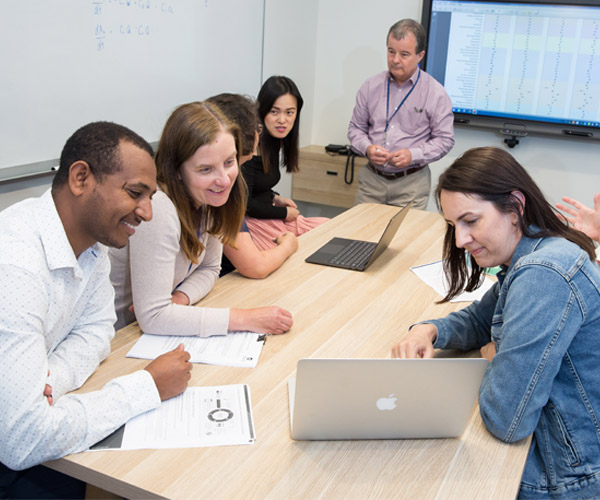
An Australian-first study reducing avoidable hospital admissions
Dr Lisa Kalisch Ellett
Each year in Australia there are more than 250,000 hospital admissions caused by medicine use.
Given 50% of people with a mental health more...
Each year in Australia there are more than 250,000 hospital admissions caused by medicine use.
Given 50% of people with a mental health condition take medicines, this is an increasingly important issue. While some can be managed through non-drug therapies, conditions like schizophrenia usually require people to take antipsychotics that can cause unpleasant side effects, including sedation, weight gain, and sexual dysfunction – a common reason for non-adherence.
Dr Lisa Kalisch Ellett and a group of UniSA researchers hope to conduct an Australian-first study identifying the prevalence of potential medication-related hospital admissions in adults with mental health conditions, and the extent to which these could have been prevented.
Many medicines used to manage mental health conditions require close monitoring and dose titration in order to ensure efficacy and safety. However, up to 87% of people using these medicines don’t receive the necessary support and monitoring.
Additionally, homelessness and substance abuse can create additional challenges and stigma for people with mental illness. These barriers can include access to follow-up care and medicine adherence.
Working with the Flinders Medical Centre and Northern Territory Top End Health Service, the multidisciplinary team aim to identify the types of medication related problems most associated with hospital admission. The data collection will be led by clinician researchers at these sites.
The results of this project will allow the development of targeted interventions to improve medicine use and reduce avoidable medication-related hospital admissions in adults with mental health conditions.
More broadly, developing interventions to reduce medication related hospital admissions has the potential to substantially reduce capacity issues regularly experienced in Australian hospitals.
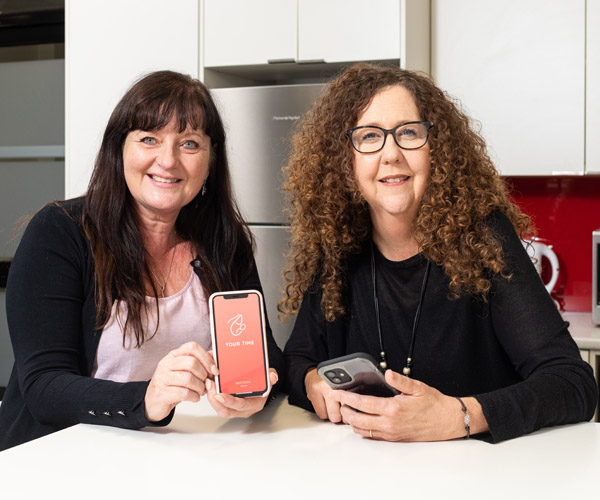
Perinatal mental health support in the palm of your hand
Dr Lois McKellar
Having a baby can be a wonderfully exciting time. However, for many, the expected challenges are compounded with perinatal anxiety and depression.
Up to one in five more...
Having a baby can be a wonderfully exciting time. However, for many, the expected challenges are compounded with perinatal anxiety and depression.
Up to one in five expecting or new mothers, and one in 10 expecting or new fathers, will experience perinatal anxiety or depression.
The condition affects around 100,000 families across Australia every year. Left untreated, it can have a devastating impact on parents, partners, babies, and the rest of the family.
Associate Professor of Midwifery, Dr Lois McKellar, is applying her knowledge and evidence-based research to better support Australian families during this time through a new app called Yourtime.
Yourtime is a new and unique app that responds to priorities in perinatal mental health. It promotes positive mental wellbeing by providing a digitalised tool that enables parents to self-monitor and track their mood during pregnancy and early parenting – assisting them to recognise the early signs of perinatal anxiety or depression.
Specifically, the app places perinatal mental health support in the palm of the parent’s hand. It offers a de-medicalised approach encouraging parents to think about their mental health, and also gives users the opportunity to share their responses with a health professional if they choose.
Dr Lois McKellar is also working towards a networking capability, which will promote the option of sharing and connecting with other parents for peer support, during what will be an exciting but potentially vulnerable time for all.
Once complete, the networked app will be integrated into established maternity services, facilitating open discussions on mental wellbeing during pregnancy and early motherhood, to reach and engage with people early to prevent perinatal anxiety and depression.
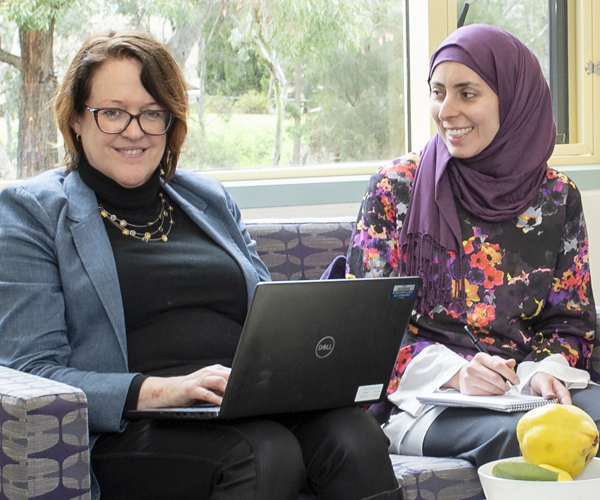
Creating a safe online space for young women
Professor Nicole Moulding
In Australia, young women have two to three times higher rates of mental health problems than young men, more...
In Australia, young women have two to three times higher rates of mental health problems than young men, with abuse being a key factor for the increasingly widening gap.
Almost half of young women report high psychological distress, one in five are diagnosed with anxiety and depression (almost double the rate of young men), and almost one in two report self-harming. The higher rates of mental health difficulties experienced by young women are largely explained by gendered violence, which has also increased in recent years.
On top of these worrying statistics, many young women do not seek help from professional services and signs of abuse are often not recognised when they do.
Professor Nicole Moulding is a researcher, author, and educator with special interests in gendered violence, mental health and social work. In partnership with her UniSA colleagues, she is developing a new program to provide a safe, online space specifically for young women who are experiencing mental health issues to improve their wellbeing.
In the UK, gender-responsive trauma-informed peer support programs designed for young women have been shown to improve mental wellbeing by increasing their social networks and self-esteem.
A ‘gender-responsive’ approach means acknowledging the gendered nature of young women’s experiences, including gendered violence. A ‘trauma-informed’ approach means developing a program that recognises the impact of trauma and its signs and symptoms and responding by fully integrating knowledge about trauma into policies, procedures, and practices, with the aim of actively preventing re-traumatisation.
Professor Moulding and her colleagues are reviewing these successful international models and developing a new program specifically for young women in Australia. For the best results, the team will be working closely with a group of young women to understand their experiences with current services and how they prefer to receive support.
In doing so, the team is actively reducing escalating mental health issues amongst young women to improve their overall wellbeing, ultimately providing a dedicated, safe, online space for young women to connect with each other, lean on each other, share their experiences and bond together.
Preventing rising suicide rates among refugees and asylum seekers
Dr Monika Ferguson
Suicide is the leading cause of premature death for people on temporary visas seeking refugee status in Australia, and recent increasing rates are a key concern.
Despite large numbers of reported incidents of self-harm and high suicide rates among asylum seekers and refugees, research in this area is lacking – a critical issue, considering that at the end of 2019, there were 79.5 million displaced people worldwide.
UniSA’s Mental Health and Suicide more...
Suicide is the leading cause of premature death for people on temporary visas seeking refugee status in Australia, and recent increasing rates are a key concern.
Despite large numbers of reported incidents of self-harm and high suicide rates among asylum seekers and refugees, research in this area is lacking – a critical issue, considering that at the end of 2019, there were 79.5 million displaced people worldwide.
UniSA’s Mental Health and Suicide Prevention Research and Education Group (MHSPR&E) is working to prevent loss of life for this vulnerable group through an education program with demonstrated success.
In 2018, Professor Nicholas Procter (Director of the MHSPR&E Group) and Dr Monika Ferguson launched a crowdfunding campaign, co-designed in partnership with people with a lived experience of suicidality and the Australian Red Cross.
The campaign’s purpose was to provide training for those who work with refugees and asylum seekers to identify signs of suicidality, and to work with this vulnerable group in a culturally sensitive way to seek assistance and intervene early.
The initial fundraising target was met, and they worked closely with more than 400 caseworkers, volunteers, and people with lived experience of suicide across Australia through a two-day suicide prevention education program.
Researchers from the MHSPR&E Group also undertook a systematic review of evidence to determine the key warning signs of suicide for refugees and asylum seekers to inform government and non-government sector workers, and others, to use at the point of care.
As a Research Fellow, Dr Ferguson along with other members of the research team, have been evaluating the program and found it can lead to significant improvements in workers’ confidence, attitudes and competence; key markers associated with a worker’s ability to identify, respond to and manage suicidal distress more effectively.
This has helped policy makers shape responses to refugee trauma and provide person-centred care and safety planning to help address the onset or worsening of suicide related distress.
Following on from this success, Dr Ferguson is now working with frontline SA Health workers to co-design and rigorously evaluate targeted safety planning interventions following a suicide attempt.
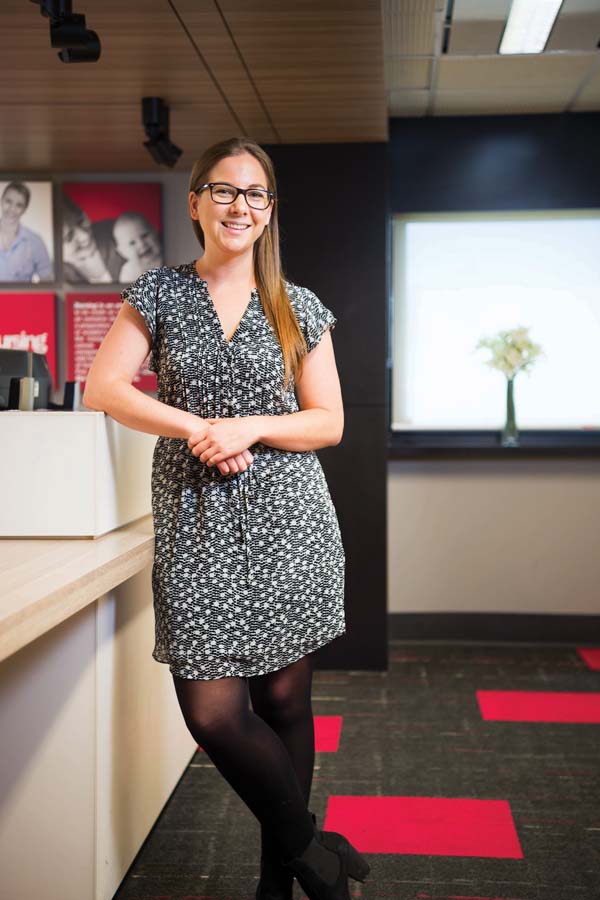

Co-designing specialist mental health education programs for registered nurses
Rachael Vernon more...
Mental health and suicide prevention across Australia are undergoing transformation following several high-level reports and announcements including Review of the Oakden Older Persons Mental Health Service, National Productivity Commission Report, and the appointment by the Australian Government of the First National Suicide Prevention Advisor.
This follows growing and compelling need for improvements in and upskilling of health service responses to mental distress, recruitment and retention of qualified staff, and early intervention for people at risk of mental illness and suicide.
In response, Professor of Nursing and Dean of Programs (Nursing & Midwifery), Professor Rachael Vernon, has partnered with lived experience knowledge and insight, industry, and government experts to co-design specialist education programs for registered nurses that are innovative and complimentary to UniSA’s current portfolio of education deigned for specific in-situ workplace learning.
Funded by SA Health, the new education programs span adolescent mental health right through to care of the older person. Initially focussed on nurses, the course ‘Best Practice for Adolescent Mental Health’ provides specialist knowledge on the psychological wellbeing of young people, best practice ways of intervening early upon mental distress and associated risk factors that may ultimately prevent crisis.
This program combines key strengths of an ongoing portfolio of research, co-design and delivery of programs and courses, and strengthening workforce capability across the lifespan. The program stems from sector need, is driven by lived experience knowledge and insights and built from evidence based best practice.
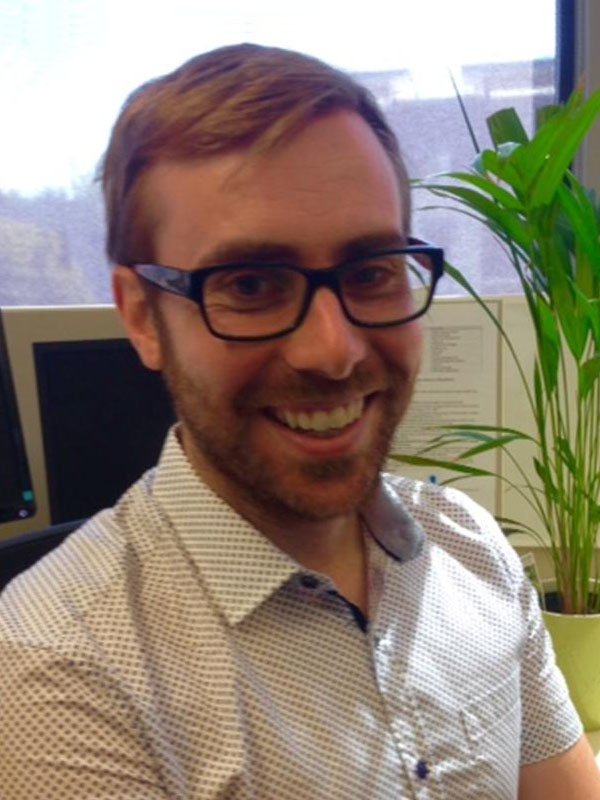
Improving the lives of vulnerable children
Dr James Herbert
The effects of childhood abuse and neglect can last a lifetime and have been associated with serious more...
The effects of childhood abuse and neglect can last a lifetime and have been associated with serious negative mental health outcomes, including drug and alcohol abuse, violence and criminal offending, the abuse and neglect of one's own children and, tragically, suicide.
The Australian Bureau of Statistics have estimated that approximately 1,410,100 people living in Australia experienced sexual abuse before the age of 15. For those going through the justice system, access to therapeutic services is important for addressing the effects of trauma.
However, internationally, completion rates of therapeutic services are concerningly low for children referred following contact with police and child protection authorities; these rates are not known for Australian states/territories.
Dr James Herbert, is dedicated to improving the lives, and mental health, of vulnerable children and families across the country. As a Senior Research Fellow, he is aiming to transform the lives of children who have experienced abuse and neglect or who are at risk.
This research, with the award-winning Australian Centre for Child Protection (ACCP), strives to ensure that each child can grow and develop in a safe, supportive environment, to reach their potential.
However, not every child has that opportunity. Dr Herbert’s research is focused on bridging the gap between access to ongoing vital therapy services after a disclosure of abuse - as disclosure to authorities is a critical point to provide connection to support and mental health services for abused children.
His current project will aim to identify strategies to address barriers to accessing therapy following this disclosure of child sexual abuse, by determining the characteristics of the children’s families or care-givers, and how this affects their take-up of therapy.
Understanding the characteristics of these particular groups of people is essential to putting appropriate supports in place to address potential barriers the child’s family may have in engaging with mental health services.
Dr Herbert and the ACCP believes every child deserves a champion – to grow up happy and care free means having someone care for you. Knowing how to tackle abuse and neglect when it occurs, identifying what can be done better to respond to and support children at risk with systems and responses based on rigorous evidence, is key to truly helping these children and their families.

The elusive work-life balance and how you can maintain it post-COVID-19
Dr Silvia Pignata more...
Across the globe in 2020 and 2021, the significant public health and economic impacts of COVID-19 have resulted in a growing realisation of the importance of people’s wellbeing both at work and home.
In Australia, many sectors have been strongly impacted by COVID-19, with resulting financial concerns and job losses, and this impact will continue to be felt for some time.
Sixty per cent of surveyed staff reported that they found it difficult to switch off outside of business hours, 62% reported work-family conflict most of the time or always and 45% reported a poor level of job security. These stressors are adding to an already stressful external environment.
Dr Silvia Pignata’s research focuses on this stress and mental wellbeing in workplaces and has over 35 publications, including the recent “Handbook of Research on Stress and Well-being in the Public Sector” edited with Canadian Professor Ronald Burke which has contributions from over 40 leading national and international researchers.
Dr Pignata is currently working with her colleagues to better understand the impact of digital communication and stress, particularly post 2020 following the social impacts of COVID-19.
This is heralding a four-year project that focuses on the mental wellbeing of staff (including casual staff) that Dr Pignata and her colleagues are undertaking. Last year, they surveyed over 2000 Australian higher education workers during the second six months after the onset of COVID-19.
This research is a vital tool to understand and provide evidence of both the challenges of workplace digitalisation and the intrusion of work into non-work time and its impact on sleep and recovery.
It will also tackle vital areas of a healthy work-life balance through the impact of worker burnout or engagement, the importance of the psychosocial safety climate in maintaining a healthy workforce, and the need to design and promote best practice in managing and promoting mental wellbeing within the sector, to achieve an environment where everyone can succeed.
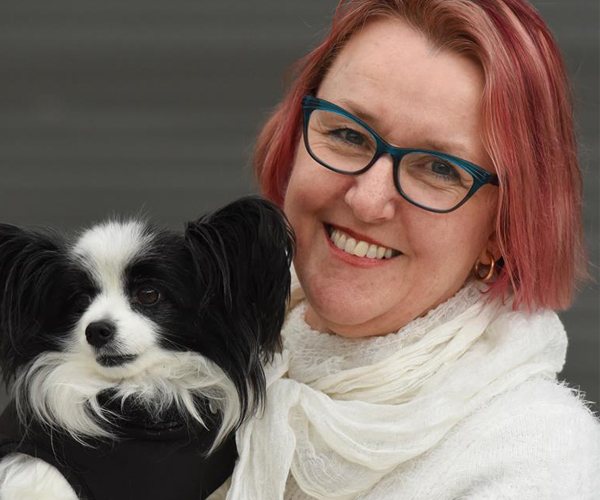
Puppy love: pets and aged care mental health benefits
Dr Janette Young
Pets bring us joy, a renewed purpose, provide company, and have been proven to positively impact an individual’s mental health and sense of self to extraordinary degrees. more...
Pets bring us joy, a renewed purpose, provide company, and have been proven to positively impact an individual’s mental health and sense of self to extraordinary degrees.
Dr Janette Young has been investigating the positive outcomes animals bring to our lives for over ten years. Regularly featured in the media, her research demonstrates how pets improve mental health and wellbeing for people especially in times of loss, trauma and change, and particularly as we age.
Dr Young and her colleagues in the Pets & People Research community of practice are applying their knowledge to residential aged care – where people who have had pets all their lives may end up with no animal contact; meaning they lose the special mental health benefits that animals are uniquely able to provide.
They are working to develop ways of allowing older people to safely bring their pets with them into care, and collaborating with aged care and residential services, veterinarians, and animal welfare entities.
This will also help ease the transition into care facilities, as being separated from a loving pet is known to delay people from going, and causes separation anxiety and depression when there.
Dr Young and her colleagues are also strategising ways to allow emergency care for people and their pets, as this is a known gap at present.
With Dr Young and her team’s support, these findings will motivate agencies and institutions to adopt policy changes that enable people to continue keeping pets in their lives as long as they are able, bringing joy the lives of many – including our furry friends.

Nature’s playground - relieving psychological distress in teenagers
Dr Katherine Baldock
Australia is in the midst of a youth mental health crisis. One in seven adolescents aged 12-17 experience mental illness more...
Australia is in the midst of a youth mental health crisis. One in seven adolescents aged 12-17 experience mental illness and one in four aged 15-19 experience psychological distress, indicating probable serious mental illness.
Traditional therapeutic approaches to treating mental health issues in adults have limited value for young people due to differing manifestations and effects and consequences from treatment. There is consistent evidence that young people are not merely ‘little adults’ and alternative treatments need to be considered.
Dr Katherine Baldock and a group of accredited UniSA researchers are investigating how simply engaging with nature can help improve outcomes for teenagers experiencing distress.
Emerging evidence suggests that, for children and adolescents, engagement with nature is beneficial for promoting psychological wellbeing and reducing mental illnesses characterised by depressive symptoms and psychological distress. Further, engagement with nature in childhood and adolescence may reduce the risk of mental illness in later life.
However, to date, no study has investigated how young people, particularly those in the critical transition period of adolescence, currently engage with nature, nor their perspectives and preferences for engaging in nature.
Dr Baldock and the team are developing a co-designed, youth-informed strategy for early intervention and prevention of mental illness among adolescents aged 12 – 18.
Their research will address an important gap between evidence and practice. Although engaging with nature is known to benefit adolescent mental health, this is not consistently translated into practice. By exploring “how” and “why” adolescents engage with nature, this research is gaining first-hand accounts of issues that underpin and inform successful engagement.
In turn, these findings are informing recommendations and strategies for interventions. One such example is the adolescent-co-designed nature-based spaces that are being developed in collaboration with schools and local governments with the intention of promoting mental wellbeing and preventing mental illness among this vulnerable demographic.

Comics to communicate trauma
Dr Jeanne-Marnie Viljoen
It is widely understood that young people can find it challenging to articulate their experiences with unsettling behaviour and mental health issues. more...
It is widely understood that young people can find it challenging to articulate their experiences with unsettling behaviour and mental health issues.
To help mitigate this, Dr Jeanne-Marnie Viljoen and a team of UniSA researchers and a professional comic artist are exploring how comic books can be used to help young people communicate their mental health issues.
Internationally, comic books have successfully been used as a tool to help people describe a broad range of troubling experiences, such as having an alcoholic parent, a parent living with chronic illness, or struggling with anxiety.
Previous Australian studies on comics have found that they have been helpful for processing trauma and help make complex ideas easy to understand, especially in the area of health.
Getting young people to produce the comics themselves also develops technical and interpretive skills that help to illustrate abstract concepts and transcend barriers.
Through these comics, Dr Viljoen and her team help young people articulate difficult experiences in a way meaningful to them, create community between participants and strengthen connections between participants and their communities.
Ultimately this improves the ability of individuals, families, practitioners and policy makers to better engage with a participant’s preferred narratives on trauma, coping behaviour and mental health.
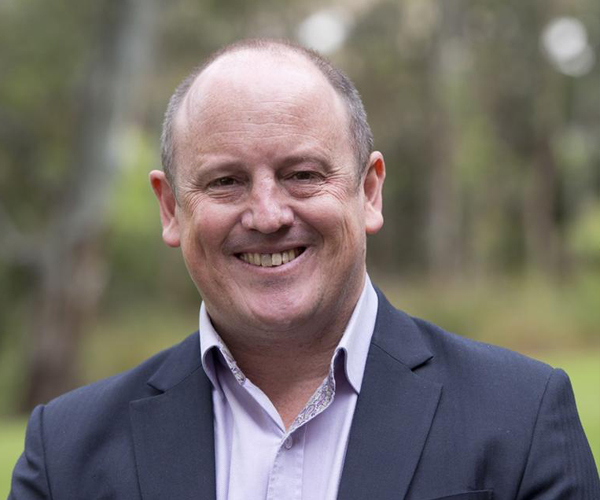
The untapped mental health tools in schools
Associate Professor Simon Leonard
Schools are not only places of learning; they also play a significant role in the social and emotional development of young people more...
Schools are not only places of learning; they also play a significant role in the social and emotional development of young people and are one of the largest supports for the mental health of young people in our community.
However, many possible interventions available to schools are poorly targeted or beyond school resourcing, and the data to make effective and timely decisions in this space is often lacking.
As a result, the extent of mental health issues for young people often goes under-reported and unidentified in schools.
Associate Professor Simon Leonard is a passionate STEM Education researcher focused on understanding how innovative approaches to teaching and learning can be adopted in response to student mental health.
As members of UniSA’s Centre for Change and Complexity in Learning (C3L), Associate Professor Leonard and his team abide by W.E.B. Dubois’ philosophy that ‘education must not simply teach work - it must teach life’. This means mental health must take priority in schools.
Learning analytics tools have the potential to allow pastoral leaders, counsellors and teachers in schools to have access to regular, cohort wide wellbeing data about their students — much like a doctor checking the vital signs of their patients.
Therefore, Associate Professor Leonard is researching and designing a ‘Student Wellness Survey’ (SWS) which will translate into a light touch digital tool to measure the wellness of young people in schools.
This project team will develop, pilot and validate the SWS instrument against the long-standing Wellbeing and Engagement Collection (WEC). They will then partner with Trinity College in Adelaide’s northern suburbs to understand how this data is best used to support mental health programs within the complexity of real-world schools.
This SWS and the emerging field of Learning Analytics (LA) offers new solutions for schools in improving the mental health of young people in a sustainable and scalable way.
Prioritising and understanding mental health in schools with the Student Wellness Survey is a more responsive way to address the real needs of young people and those that support them in schools.

Trauma-informed support for school children
Professor Elspeth McInnes AM
Educators in schools are connected to a wide variety of children from all walks of life. more...
Educators in schools are connected to a wide variety of children from all walks of life.
However, some of the issues facing schools with high numbers of students with complex needs are often an amalgamation of living with poverty, family problems, speaking home languages other than English, and dealing with traumatizing events and contexts such as refugee experiences.
Associate Professor Elspeth McInnes AM and her team at UniSA have been developing innovative and sustainable ways to implement cultures of wellbeing in primary classrooms and schools in South Australia, especially for vulnerable children.
Their research has demonstrated that working with students and educators over time, using structured peer education and classroom-based professional coaching in trauma informed pedagogy, can drastically improve a child’s sense of safety, belonging and enjoyment within their school environment.
Other outcomes have included student leadership opportunities, teachers’ experiences of reduced stress and improved relationships with students, as well as increases in the engagement of family with their child’s school.
These gains have been accompanied by sustained improvements in student attendance, peer friendships and academic achievements.
Following their notable successes to date, the team’s next research phase involves working with diverse early childhood service contexts to co-design processes to support carers, parent volunteers and educators to implement trauma informed care for younger children.
These education practices will foster pre-school aged children’s (0-5 years) positive social and emotional development, as well as supporting the continued development of knowledge and resources for families to help them contribute toward these collective goals.
100% of every dollar you give, goes directly to supporting mental health research. The University of South Australia is a deductible gift recipient. All donations to the UniSA mental health research are tax deductible depending on your personal tax circumstances.